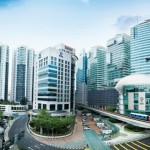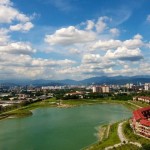The highly controversial National Security Council (NSC) Act is about to be implemented from 1st August onwards. This bill was proposed in December 2015 and was approved early this year, without the consent of the King.
Even though the other bills which are passed in parliament requires the King’s consent, yet this was passed by the Dewan Rakyat and Dewan Negara alone. This is the first time such a thing has happened in Malaysia.
The bill was presented to the King and other rulers on February 2016 and should have received their consent within a month. But the rulers were of a mind that some of the provisions in the bill needed to be refined.
However, the rulers’ requests were ignored and the bill was passed without any amendments at the end of the 30 days period.
On 7th June 2016, Attorney-General Tan Sri Mohd Apandi Ali announced that the Royal Assent was obtained on February under Article 66 (4A) of the Federal Constitution, which says that even if the King does not give assent at the end of 30 days, he is deemed to have done so.
This bill was opposed by opposition parties and human right organisations, as it will give the Prime Minister absolute power and allow the establishment of the Nasional Security Council.
Now, the NSC Act has been formed as a law and will come into force on 1st August 2016. Based on the act, the NSC will be government’s central authority for matters concerning national security.
The NSC consists of the Prime Minister as chairman, Deputy Prime Minister as deputy chairman, the Defence, Home and Communications and Multimedia ministers, Chief Secretary to the Government, Chief of Defence Forces, and Inspector-General of Police.
As per the law:
- The Prime Minister can declare a region as a security area for six months at a time and allow it to extend for up to another 6 months or indefinitely;
- The NSC can deploy security forces or any government entities into the area;
- The Director of Operations may order the exclusion/evacuation/resettlement/curfew to a citizen, and failure to obey may result in a fine not exceeding RM5,000 or a jail term not exceeding three years or both;
- Without a warrant, security forces can stop and search any individual, vehicle, vessel or aircraft in the security area if they are suspected of offence; and enter and search any premise or place if they suspect that any evidence of the commission of an offence is likely to be found on the premises, and may seize any article so found;
- The security forces also have powers to take possession of any land, building or movable property such as vehicles in the security area;
- The declaration or extension will only be announced through any way the Prime Minister thinks necessary to inform the public;
- If causalities occur within the security area, no investigation will be conducted (no one will be held responsible if you were injured or killed in the course of duty); and
- The Director of Operations is only answerable to the NSC, not even to the Agong;
These are essentially the powers reserved for emergency situations. According to Article 150 of the Federal Constitution, the King can issue a Proclamation of Emergency if the King believes that a grave emergency exists whereby the security, or the economic life, or public order in the Federation or any part thereof is threatened.
But after the implementation of NSC Act, the executive will have the power to do so without having to go through to the Agong.
Furthermore, the NSC Act does not define what is ‘national security’, even though the phrase appears many times in the proposed law. And there is no mention of how wide this Security Area can be. It can be as narrow as a house to as wide as the whole country. This means that the NSC can declare a wide security area even if there are no security concerns involved.
Mangalesri Chandrasekaran, Editor at PropertyGuru, edited this story. To contact her about this or other stories email mangales@propertyguru.com.my





